Understanding the Benefits of a 12 Volt Water Pump for Your DIY Projects
In the realm of DIY projects, the versatility and efficiency of a 12 volt water pump are quickly gaining recognition among hobbyists and professionals alike. According to recent industry reports, the demand for compact and energy-efficient water pumps has surged by over 25% in the past five years, reflecting a shift towards sustainable and portable solutions. These pumps are not only lightweight and easy to install, but they also operate at lower voltages, making them ideal for a wide range of applications, from hydroponics to recreational vehicle setups.
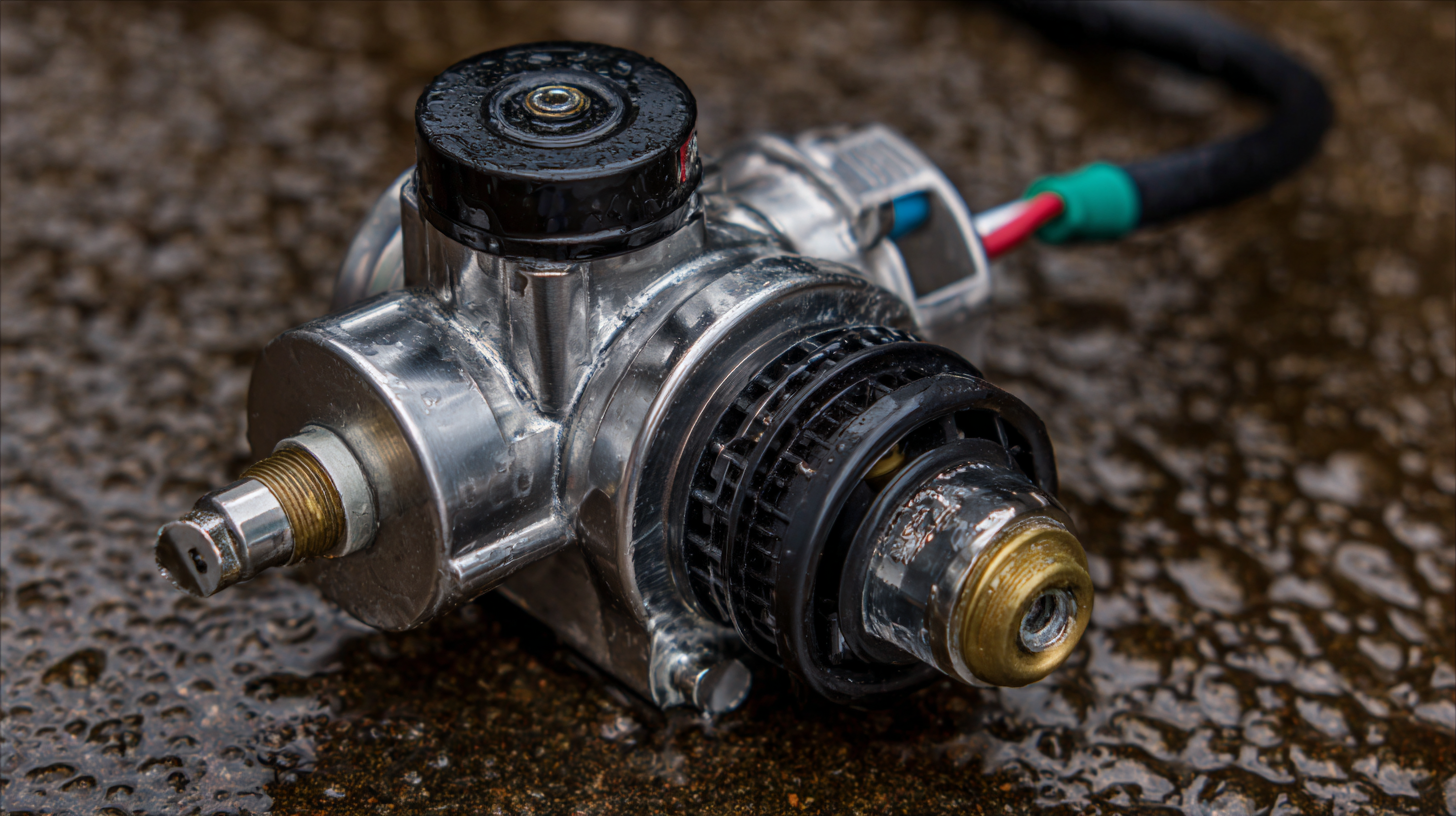 Moreover, the ability to run on batteries or solar power enhances their appeal, especially for those looking to minimize their carbon footprint. By understanding the myriad benefits of integrating a 12 volt water pump into your projects, you can unlock new levels of creativity and functionality, ensuring your DIY endeavors are both innovative and resource-efficient.
Moreover, the ability to run on batteries or solar power enhances their appeal, especially for those looking to minimize their carbon footprint. By understanding the myriad benefits of integrating a 12 volt water pump into your projects, you can unlock new levels of creativity and functionality, ensuring your DIY endeavors are both innovative and resource-efficient.
What is a 12 Volt Water Pump and How Does It Work?
A 12 Volt water pump is a vital component for various DIY projects, providing an efficient and reliable solution for fluid transfer. These pumps operate using direct current (DC) electricity, typically sourced from car batteries or solar panels, making them ideal for off-grid applications. Their lightweight design and compact size allow for easy integration into a multitude of setups, from irrigation systems to aquaponics and even portable washing stations. According to industry reports, the global market for hydraulic pumps, including 12 Volt options, is expected to reach over $45 billion by 2026, highlighting the growing demand across different sectors.
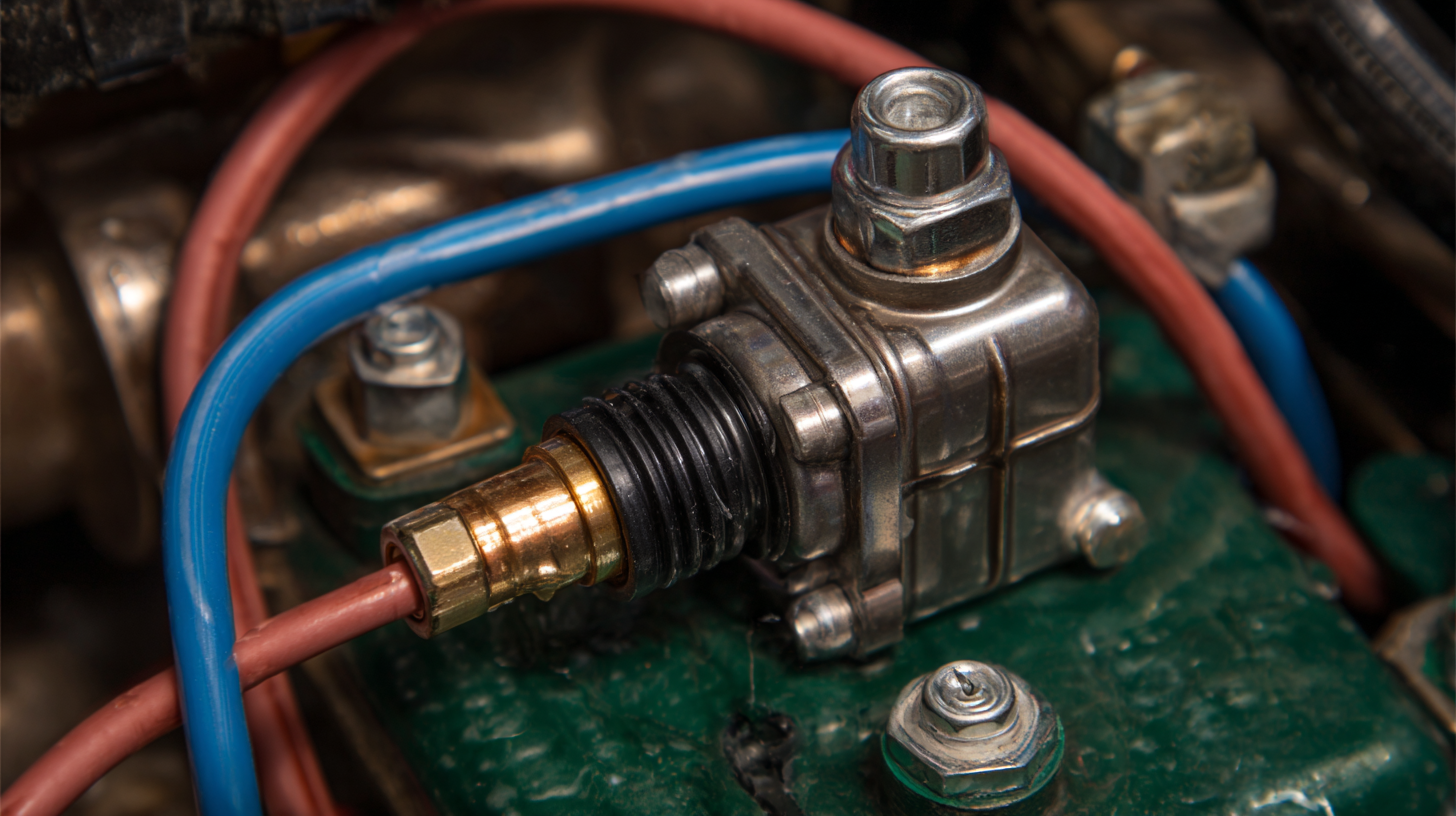
The mechanism of a 12 Volt water pump is relatively straightforward. When electrical energy flows through the motor, it activates the impeller, which creates a vacuum that sucks in water through the inlet and forces it out through the outlet. This operation can be customized with various flow rates and pressure levels according to the needs of your project. Additionally, advancements in technology have led to improvements in efficiency, with modern pumps boasting up to 80% energy utilization rates. This not only enhances performance but also contributes to sustainability efforts, aligning with the increasing emphasis on energy-efficient solutions in contemporary manufacturing practices.
Key Benefits of Using a 12 Volt Water Pump in DIY Projects
A 12 Volt water pump can be a game changer for your DIY projects, providing a versatile and efficient solution for various applications. One of its key benefits is its ease of use in setups that require portability and flexibility. Whether you’re building a small irrigation system for your garden or creating a water feature, the compact size and lightweight nature of a 12 Volt pump make it an excellent choice. Its compatibility with battery-powered systems also means you can operate it in remote locations, offering more freedom for creative projects.
Additionally, these pumps often come with user-friendly interfaces, making them ideal for integration with microcontrollers like Arduino. This allows hobbyists to automate water flow in systems such as hydroponics or aquaponics, maximizing the efficiency of water usage. The low voltage requirement means you can draw power from a solar panel, further enhancing the sustainability of your projects. As more people look for energy-efficient solutions, incorporating a 12 Volt water pump with renewable energy options aligns perfectly with modern DIY trends.
Understanding the Benefits of a 12 Volt Water Pump for Your DIY Projects
| Benefit | Description | Applications |
|---|---|---|
| Portability | Lightweight and compact design allows for easy transportation and use in various locations. | Gardening, Camping, Aquariums |
| Energy Efficiency | Operates on low voltage, consuming less power while providing sufficient water flow. | Solar-powered systems, Battery-operated setups |
| Versatility | Can be used for a wide range of applications across different environments. | Irrigation systems, Water features, Draining |
| Ease of Installation | Simple setup process with minimal tools required, making it DIY-friendly. | Home projects, DIY craft projects |
| Durability | Designed to withstand various outdoor conditions and prolonged usage. | Outdoor fountains, Water circulation in wildlife habitats |
Common Applications of 12 Volt Water Pumps: From Gardening to Aquariums
12 volt water pumps are incredibly versatile tools, making them ideal for a wide range of DIY projects. One common application is in gardening, where they can efficiently irrigate plants and gardens without the need for electricity. These pumps can be powered by batteries, allowing gardeners to install them in remote locations. This flexibility not only saves energy but also provides the convenience of transporting water to various areas, ensuring plants receive the hydration they need.
Another popular usage of 12 volt water pumps is in aquariums. Enthusiasts often utilize these pumps to maintain water circulation, ensuring a healthy environment for fish and aquatic plants. The quiet operation of 12 volt pumps is particularly beneficial in home settings, where noise can be disruptive. Furthermore, their compact size allows for easy integration into aquarium filtration systems, enhancing water quality and clarity. Whether you're looking to enhance your garden or create a thriving aquatic habitat, a 12 volt water pump proves to be an invaluable asset for all your DIY endeavors.
Tips for Choosing the Right 12 Volt Water Pump for Your Needs
When embarking on a DIY project that requires water movement, selecting the right 12-volt water pump can significantly impact the outcome. The first consideration is the pump's flow rate, which is typically measured in gallons per minute (GPM). Assess your project's requirements to ensure the pump can deliver the necessary flow. A higher GPM is beneficial for large projects or when needing to move water quickly, while lower rates may suffice for smaller applications.
Another critical factor is the pump's pressure rating, often measured in pounds per square inch (PSI). This rate affects how far the water can be pushed vertically or horizontally. If you need to elevate water to a specific height, ensure that the pump can handle the pressure without straining. Additionally, consider the pump's duty cycle to ensure it can operate reliably without overheating, particularly for continuous usage scenarios. Choosing a pump suited for your particular needs ensures efficiency and longevity in your DIY projects.
Benefits of Using a 12 Volt Water Pump for DIY Projects
This chart illustrates the benefits of using a 12 Volt water pump for DIY projects, measuring five key advantages across different categories.
Maintenance Guidelines to Ensure Longevity of Your 12 Volt Water Pump
When it comes to maintaining a 12 Volt water pump, adhering to proper guidelines is crucial to ensure its longevity and efficiency. Regular maintenance can significantly extend the lifespan of your pump, which is essential for any DIY project dependent on reliable water movement. It’s recommended to check for any blockages in the intake filter regularly, as debris can significantly impair pump performance. Moreover, periodic testing of the pump's operation can identify potential issues before they become major problems.
**Tip:** Consider using a strainer or filter to keep debris out of the pump. This simple addition can prevent clogs and reduce wear and tear, ensuring that your pump operates efficiently for years.
Another essential maintenance task is to monitor the electrical connections and wiring. Over time, wires can become frayed or corroded, leading to reduced efficiency or even failure. Keep an eye on the connections and consider using waterproof connectors to protect against moisture, which is crucial in environments exposed to water.
**Tip:** Always disconnect the power before performing any maintenance work on your pump. This not only protects the pump but also ensures your safety during the maintenance process. Regularly following these maintenance guidelines can maintain your 12 Volt water pump's functionality, making it an invaluable asset to your DIY projects.
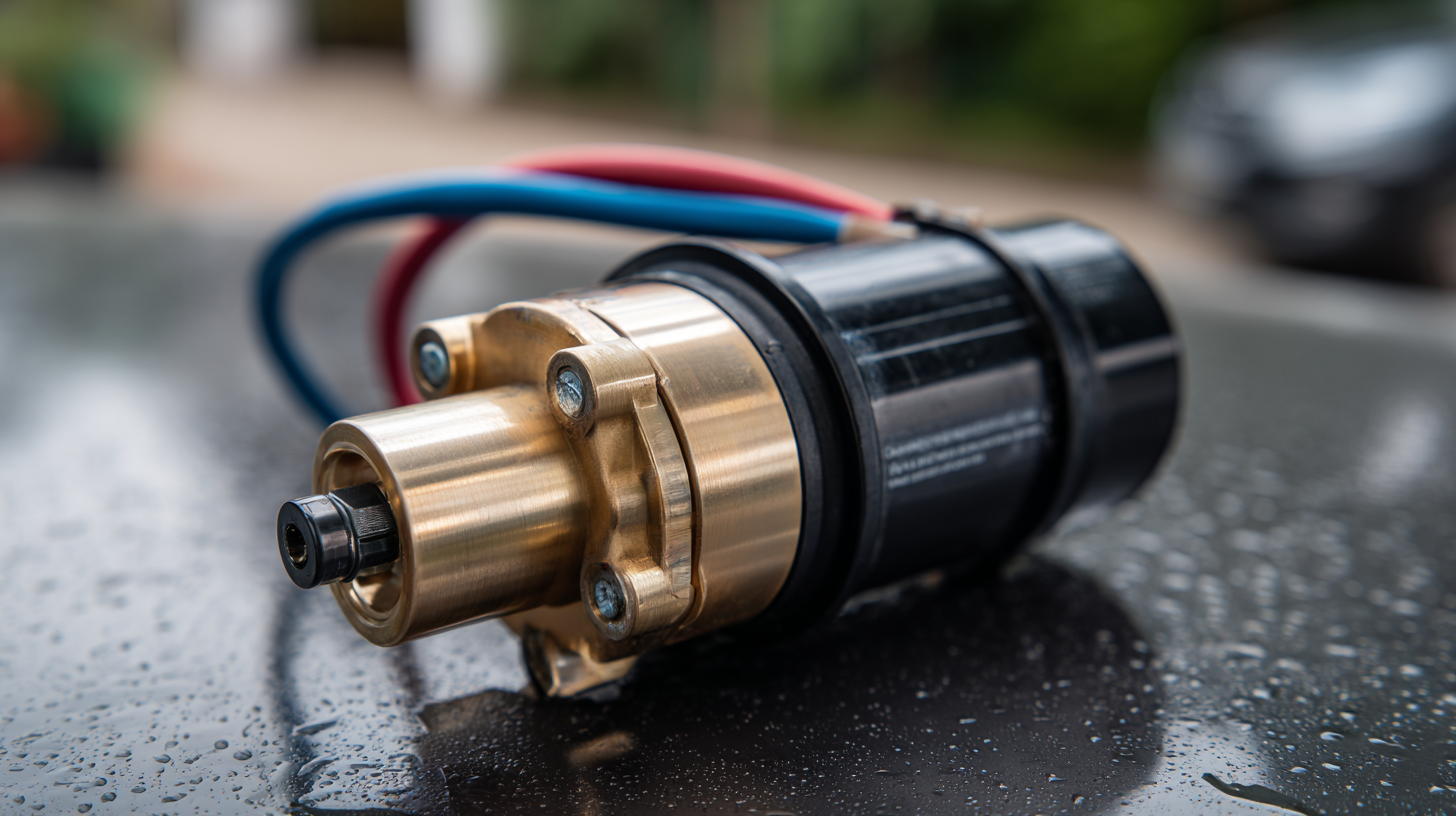
Related Posts
-
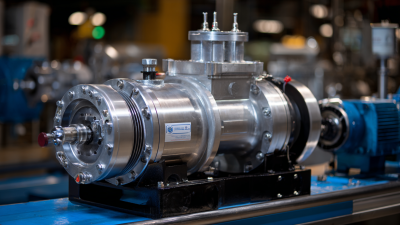
How to Optimize Efficiency with High Pressure Pump Selection
-
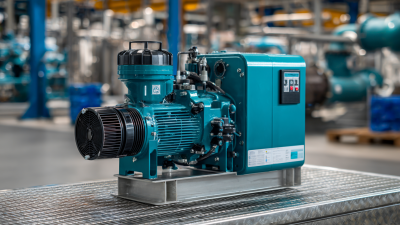
Revolutionizing Fluid Handling: The Essential Guide to Electric Transfer Pumps for Every Need
-

11 Best Soft Wash Pump Solutions for Effective Cleaning
-
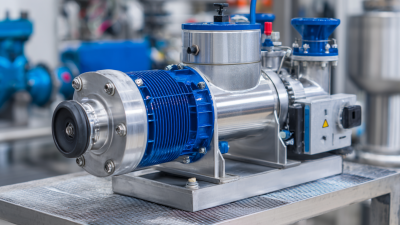
How to Choose the Right Chemical Transfer Pump for Your Industrial Needs
-
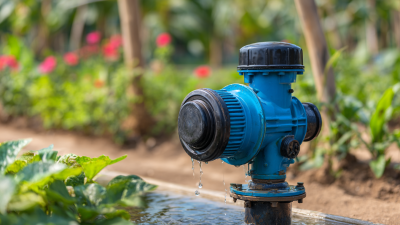
How to Choose the Right 24v Water Pump for Your Irrigation Needs
-

Optimizing Efficiency: Essential Strategies for Chemical Transfer Pump Performance in Industry